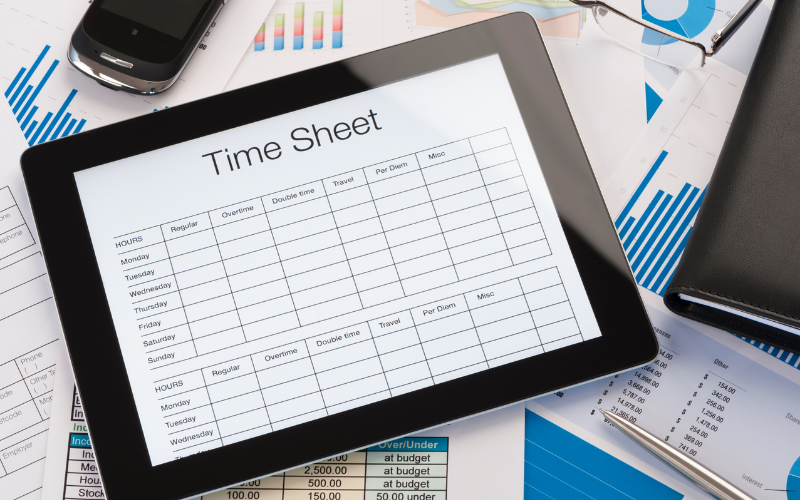Photo by Doucefleur from Getty Images Pro
Keeping track of employee productivity has always been important, but it’s even more significant in the wake of the COVID-19 pandemic. With the majority of employers allowing remote work, accurate time tracking isn’t always a guarantee. However, despite the challenge, it’s critical that all employers strive for accuracy. In fact, not doing so can lead to confusion, lost productivity and other consequences. To help you, we are outlining general time tracking responsibilities and offering some best practices to follow.
Employer Legal Responsibilities
Employers are required to compensate employees for all hours worked, according to the Department of Labor (DOL). That means any time an employee is working on a business-related task, they must be paid for it.
While rules differ slightly between exempt employees and nonexempt employees, employers generally have the same obligation: to pay employees for any time worked, no matter where or when it was worked. There is some room for dispute when it comes to unauthorized work, but a good time tracking policy would eliminate much of that possibility.
Time Tracking Policy Best Practices
Make It Easy A time tracking policy should be easy to understand and easy to enforce. For nonexempt employees, this is relatively straightforward as they will likely need to clock in and out, and will have designated breaks. On the other hand, exempt employees may be asked to keep track of their own hours worked.
Employers can devise whatever system is best for them. They may also choose to employ any number of automation tools. These include software that monitors productivity, online tools for logging hours or a variety of other solutions. Regardless of the method used, accurate time tracking is the ultimate goal.

Communicate Expectations Once a policy is devised, it must be communicated to everyone in the workplace. It should clearly define employee groups, when they’re expected to work and how they must track their time. It should also provide instances of when work is expressly unauthorized or what to do if a project requires more time but an employee already reached their weekly hours.
Establish a Recordkeeping System Once employees log their hours, it’s the employer’s responsibility to retain that data. Not only is it important for accurate reporting, but it can also impact workplace conversations. For instance, an employee’s record may show a decline in hours worked over a quarter, which may necessitate coaching. Having this time tracking data will be important for following up with them later in the year. Such data will also be critical if anyone disputes the hours logged.
Reward Employees for Time Tracking Incentivizing employees for accurately logging their hours can be a great way to achieve 100% compliance. For instance, an employer may offer $10 gift cards to employees each quarter if they submitted their timesheets before the deadline each period.

Time tracking will differ between organizations, but the end goal is the same: to accurately log employee time. Not only can this data inform operational workflows, but it’s often necessary for appropriately compensating employees. However, a poor time tracking policy may be just as bad as no policy at all. Employers should be sure to follow the best practices from this article to avoid common pitfalls.








